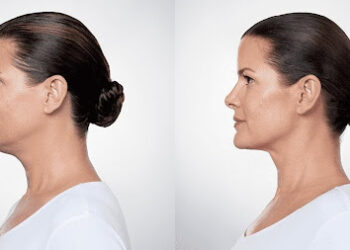Cosmetic transformations go beyond physical changes; they often have a significant impact on mental well-being. People who opt for cosmetic procedures, whether surgical or non-surgical, frequently experience boosts in self-esteem and confidence. Addressing appearance-related insecurities can enhance how individuals feel about themselves, helping them achieve a more positive outlook. This connection between physical appearance and mental health is becoming more evident as cosmetic procedures gain popularity.
The Psychological Impact of Body Image
The intricate relationship between physical appearance and mental perceptions significantly impacts mental well-being. Wrestling with dissatisfaction about one’s outer self can lead to emotional strain, fostering a web of insecurity and anxiety. These profound emotions can permeate various aspects of daily life, from personal interactions to pivotal career decisions, overshadowing overall happiness and fulfillment. However, amid this internal battle, a ray of hope emerges – the transformative influence of cosmetic enhancements. Addressing enduring self-esteem issues often triggers a profound mental transformation. Improving one’s external appearance yields physical benefits and fosters substantial mental well-being. This newfound confidence and contentment serve as a guiding light, dispelling negativity and instilling a revitalized sense of self-assurance and mental wellness.
Overcoming Insecurities to Improve Self-Esteem
Insecurities about physical appearance can lead to long-term mental health issues. Procedures like plastic surgery, body contouring, or skin treatments allow people to address these insecurities directly. Whether it’s correcting a feature that has caused years of discomfort or improving an area that affects confidence, these transformations help individuals feel more at ease with themselves. Once the physical change is made, people often experience an improvement in self-esteem, leading to better social interactions and an overall sense of well-being. Addressing insecurities through plastic surgery or other cosmetic treatments can provide a sense of control over one’s body, which in turn positively impacts mental health.
Increased Confidence Through Cosmetic Changes
Confidence is closely tied to how people perceive themselves physically. People often steer clear of specific situations or pursuits because of insecurities related to their appearance. Cosmetic enhancements offer a pathway to address these concerns and boost self-assurance. For instance, an individual feeling self-conscious about facial features or skin imperfections might experience a newfound sense of comfort and confidence post-procedure. This enhanced confidence impacts personal well-being and has the potential to create positive ripples in social, professional, and interpersonal realms, fostering stronger relationships and uncovering new opportunities for growth and development.
The Role of Non-Surgical Treatments in Mental Well-Being
Non-surgical cosmetic treatments, including popular options like Botox, dermal fillers, and laser procedures, provide individuals with the opportunity for subtle yet noticeable enhancements. These treatments are favored for their ability to address various aesthetic concerns without the need for invasive surgery, offering a convenient solution for those looking to refresh their appearance. Many individuals discover that even minor adjustments, such as reducing wrinkles or achieving smoother skin texture, can have a significant impact on their self-perception and confidence levels. The appeal of these treatments lies in their effectiveness and in the minimal downtime they require, making them a preferred choice for individuals seeking to harmonize their external look with their inner sense of self. Consequently, the positive outcomes often include a boost in self-esteem and a clearer state of mind, reflecting the powerful connection between physical appearance and emotional well-being.
Social and Emotional Benefits of Cosmetic Transformations
Cosmetic transformations offer personal benefits and social and emotional improvements. When someone feels good about their appearance, they tend to be more outgoing and socially confident. This increased confidence helps in building stronger personal relationships and can lead to greater success in social or professional environments. Emotionally, feeling satisfied with one’s appearance can reduce feelings of isolation and low self-worth. People who are happy with their looks tend to experience a more positive emotional state, which in turn fosters better relationships with others.
The Importance of Realistic Expectations
While cosmetic procedures can improve appearance and mental health, it’s essential to approach them with realistic expectations. These transformations can enhance confidence and self-esteem, but they are not a cure for deeper emotional or psychological struggles. Those who understand the limitations of cosmetic changes are more likely to experience long-term satisfaction with the results. Realistic expectations help individuals fully enjoy the mental and emotional benefits of cosmetic procedures, without expecting them to resolve all aspects of their well-being.
Cosmetic transformations have the potential to positively impact mental health and self-esteem by addressing appearance-related concerns. From non-surgical treatments to plastic surgery, these procedures offer people a chance to feel better about how they look, which often translates into improved confidence and social interactions. When approached with realistic goals and expectations, cosmetic transformations can enhance both physical appearance and emotional well-being, leading to a more confident and fulfilling life.







